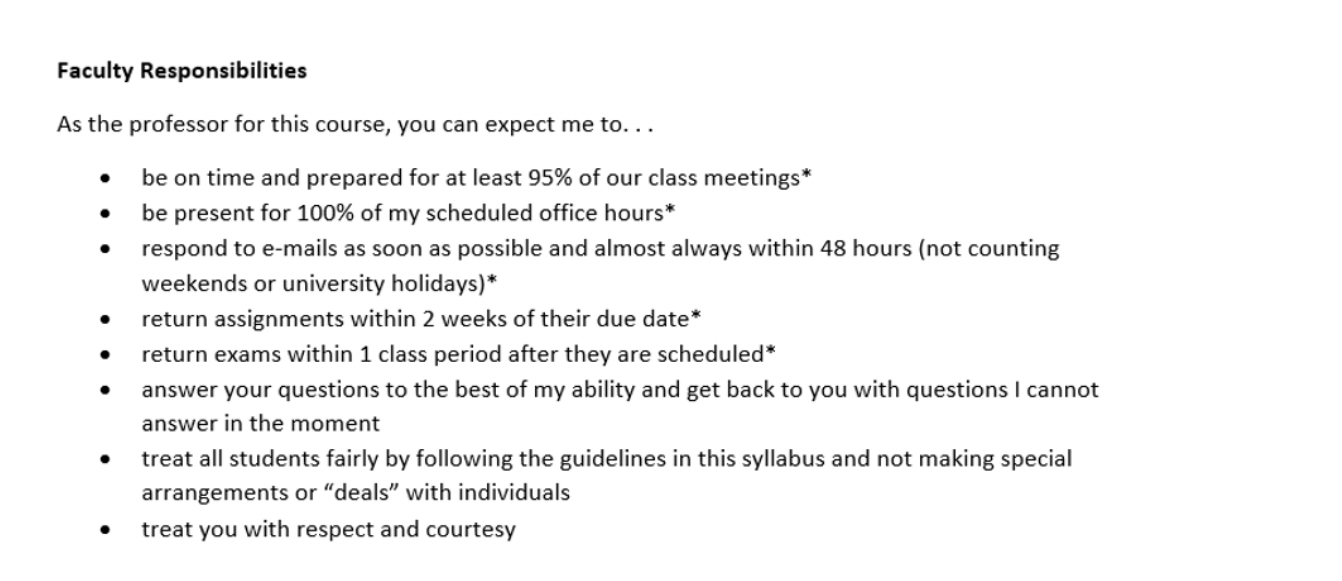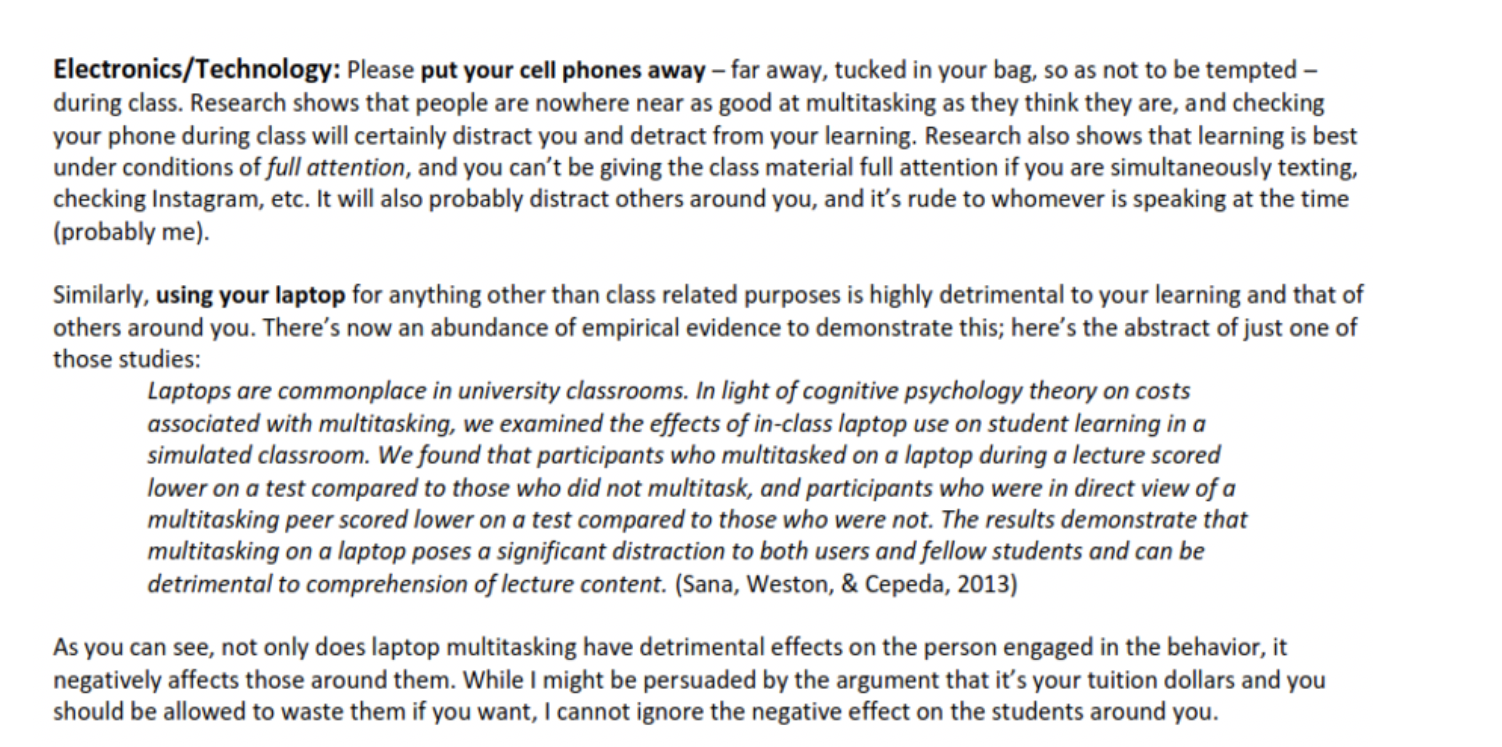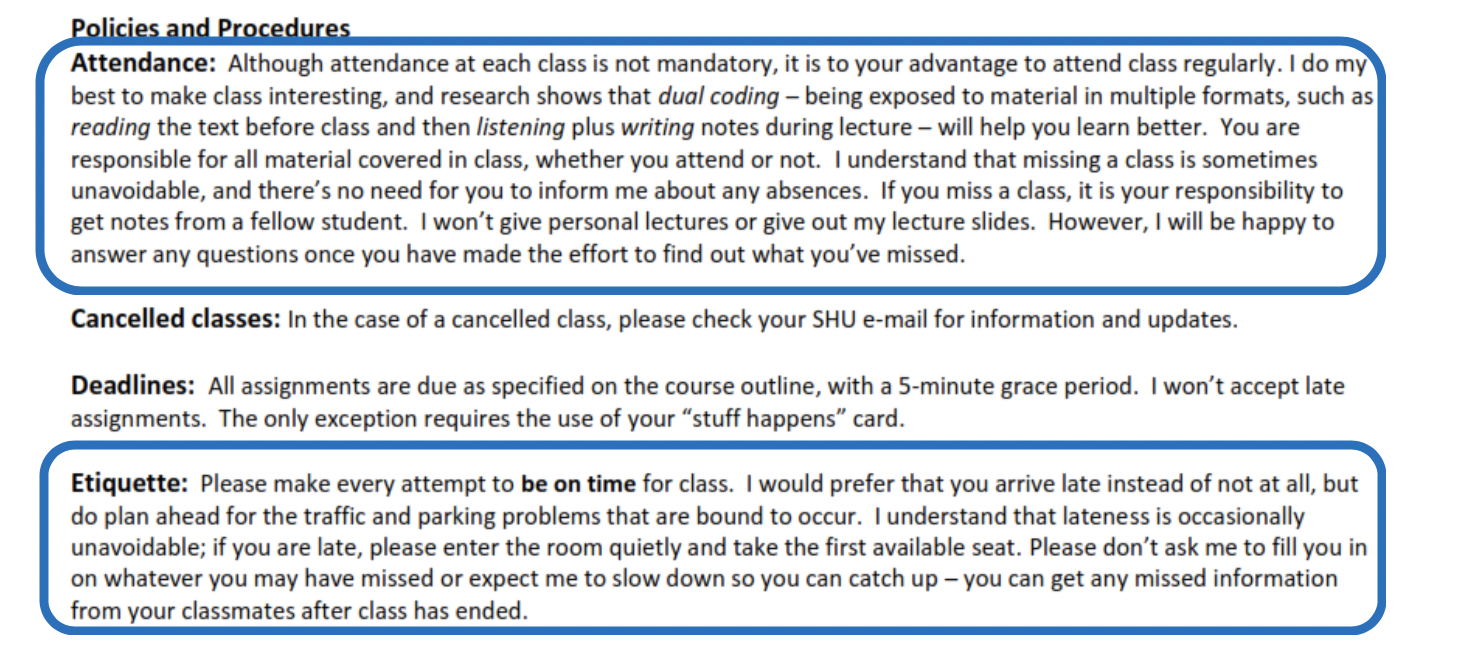By: Amy S. Hunter
I've written in this space before about Project Syllabus (PS), the compilation of peer-reviewed syllabi for psychology courses supported by Division 2 (Teaching of Psychology) of the American Psychological Association. In this follow-up post, I'll describe three quick and easy changes you can make to your syllabus to make it consistent with some of the principles of the rubric.
Before I do so, though, I’m going to provide two empirically based reasons why using the PS rubric to guide the construction of your syllabus is good practice. First, college student participants given a learner-centered syllabus rated a hypothetical professor more highly on master teacher behaviors including enthusiasm, receptivity, and levels of student engagement as compared to participants given a teacher-centered syllabus (Richmond, Slattery, Mitchell, Morgan, & Becknell, 2016). Additionally, syllabi posted on PS were found to be “disproportionately learner-centered on almost all of the factors assessed” (Richmond, Morgan, Slattery, Mitchell, & Cooper, 2019, page 6). Taken together, these results indicate that students have more positive perceptions of faculty who use learner-centered syllabi and that following the PS rubric leads to such syllabi.
The rubric itself is long and detailed, but some components are easier to implement than others. In this blog post I’ll discuss three simple changes you can make to enhance your syllabus and your course. I’ll also include examples from my own syllabi to show how you can modify your syllabus to make it more learner-centered and consistent with the PS rubric.
The first of those components is inclusion of faculty roles and responsibilities. In general, faculty are good at describing student responsibilities: you’ll write 4 papers, you should put your phone away before class starts, etc. However, we’re typically not as clear in describing our own responsibilities and what students can expect of us. For example, how quickly will you respond to student e-mails? How soon should students expect to receive graded work? Some syllabi incorporate this information throughout the document, such as:

Others include this in its own section:

Regardless of how it is incorporated, inclusion of explicit faculty responsibilities helps students to understand their faculty members and provides additional information about what they can expect from the professor and the course. I’ll admit that I resisted some of this at first, particularly providing turnaround time for graded work. However, it’s turned out to be beneficial for me too, by giving me a deadline that I feel compelled to meet. If I have a deadline for students to submit their work to me, why shouldn’t I have one for returning it to them?
The second component is to provide an explicit rationale for your pedagogical choices. If you’re taking time out of your day to read this blog post, you likely care about teaching and are thoughtful and deliberate in your course design. Instead of keeping that thought process to yourself, share it with your students; explain the rationale for your choices to them.
For example, here’s the section in my syllabus on the use of electronics/technology (which is based on Marianne Fallon’s Research Methods syllabus, posted on PS):

I also provide a rationale for course requirements, as this explanation for writing assignments demonstrates:

Finally, consider the overall tone of your syllabus. If a student’s first exposure to you is your syllabus, how would that student perceive you? We often start our syllabi with the standard description of the course from the university course catalogue, which tends to be dry and boring. However, here’s your chance to tell students why they should be excited about and interested in your course! Most of us would agree that teaching is a perk of our jobs: we get paid to talk to a captive audience about things we find interesting. Share that excitement with your students!

Tone can be expressed throughout the syllabus:

I’ve always had a “policies and procedures” section in my syllabi, and earlier in my teaching career they were very teacher-centered and read like a list of commandments: Don’t be late. Don’t ask me for my slides. Don’t submit late work. Over the years I’ve modified this section to reflect a more friendly, student-centered tone while still conveying the same information. Note that this section still includes my expectations of students regarding attendance and etiquette – for example, students are responsible for all material covered in class whether they’re in attendance or not, and I won’t stop lecturing so latecomers can catch up – but the message is conveyed very differently.
When I first heard about the concept of designing a course in a learner-centered fashion, my initial assumption was that “learner-centered” was essentially a synonym for “less rigorous”. However, after implementing these changes I’ve found that’s not true at all! My course isn’t any easier than it was before; crafting a syllabus in a more learner-centered fashion reminds me to be more respectful and to think about the class from the student perspective, not just my own.
While these modifications only encompass a small portion of the rubric and there are other changes you can make to increase the degree to which your syllabus – and entire course – are learner-centered, these relatively easy changes will undoubtedly get you on the right track. If you’re interested in learning more, please consider attending my synchronous virtual workshop at the Annual Conference on Teaching in October 2020, where I’ll provide more suggestions and provide ample time for attendees to ask questions and make changes to their own syllabi. Hope to see you there!
References
Richmond, A.S., Slattery, J.M., Mitchell, N., Morgan, R.K. & Becknell, J. (2016). Can a learner-centered syllabus change students’ perceptions of student-professor rapport and master teacher behaviors? Scholarship of Teaching and Learning in Psychology, 2(3), 159-168. https://doi.org/10.1037/stl0000066
Richmond, A.S., Morgan, R.K., Slattery, J.M., Mitchell, N., & Cooper, A.G. (2019). Project Syllabus: An exploratory study of learner-centered syllabi. Teaching of Psychology, 46(1), 6-15. https://doi.org/10.1177/0098628318816129
Dr. Amy Silvestri Hunter is Associate Professor and Chair of the Psychology Department at Seton Hall University. She teaches courses such as Orientation to the Psychology Major, Research Methods, Biological Psychology, Neuropsychology of Religious Experience, and Psychopharmacology. Dr. Hunter’s research, conducted with extensive student involvement, investigates the relationship between REM sleep and memory. She was the recipient of Seton Hall’s College of Arts & Sciences Teacher of the Year award in 2014 and 2017 and Researcher of the Year in 2019. She has been the editor of the Society for the Teaching of Psychology’s Project Syllabus, a compendium of peer-reviewed psychology syllabi, since 2015.
